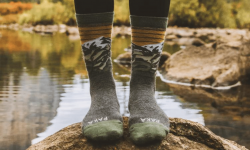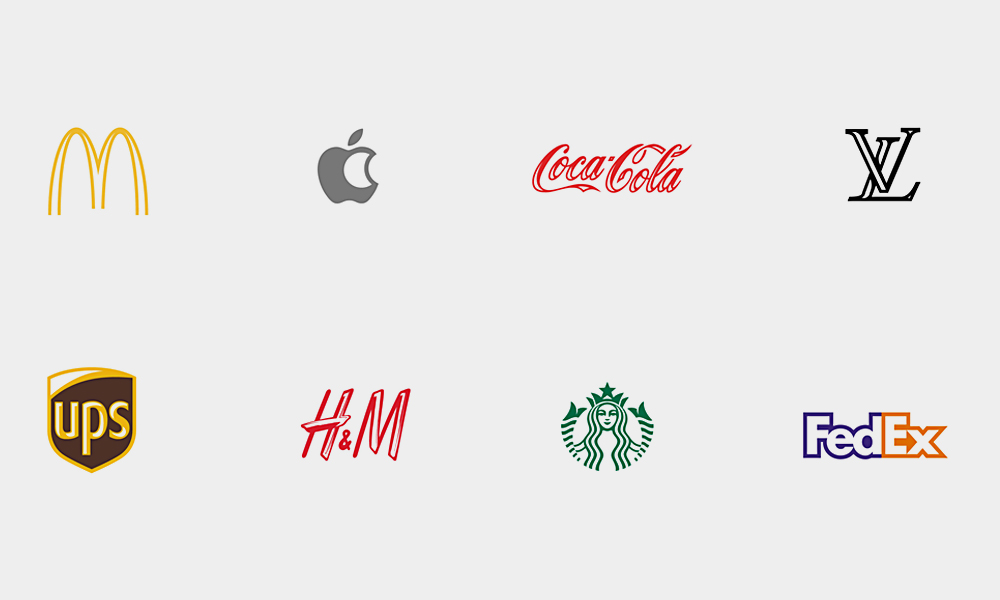
These Are The Best Ethical and Eco-Friendly Socks
Image credit: Paka
This post contains some affiliate links, which means if you make a purchase, EcoCult receives a small percentage of the sale price. Some brands may have paid a small fee to be featured. We only recommend brands that we truly believe in. Support our editorial work by supporting them!
When crafting a sustainable wardrobe, make sure you don’t overlook your socks. They’re a daily staple that can have a big impact on the health of both the environment and your feet.
Whether you want loungey socks or performance ones, there are ethical and sustainable brands offering several options for you to choose from. There’s no need to compromise durability over sustainability. We got you(r toes) covered.
What to look for in ethical and sustainable socks
Mostly natural fiber: Socks made out of natural fibers aren’t only better for the environment, but also better for the feet with better odor absorption. The brands below use natural, low-impact fabrics like organic cotton, merino wool, hemp, and closed-loop bamboo. These natural fibers don’t wreak as much havoc on the environment when they’re washed or thrown out at the end of their life.
Recycled synthetics: Brands utilize synthetic fabrics for their stretch and durability. Make sure they are using recycled materials, which saves on the fossil resources extracted to make virgin materials. A drawback is that when we wash synthetic fabric (recycled or virgin), microscopic pieces break off and lead to our huge microplastic problem. Scroll to the bottom to find out about three great resources for helping to reduce the number of microplastics that get washed down the drain.
Non-Mulesed wool: Although wool is a natural, biodegradable, and high-performance material that is healthy for your feet, it has some unethical practices. Mulesing is a technique that strips off the skin around the rear end of lambs to reduce the risk of fly infestation. You can look out for Textile Exchange’s Responsible Wool Standard.
Organic or traceable cotton: Organic cotton (often certified through GOTS) doesn’t require pesticides and synthetic fertilizers, and so preserves the health of the soil, the health of farmers, and the biodiversity of farming communities. Even better is traceable cotton, when the brand knows exactly where it is coming from and has an equitable direct relationship with the farmers who grew it.
Fair labor and transparency: As with everything you buy, check for fair labor practices. Look for brands that prioritize transparency and third-party certifications like Fair Trade, WRAP, and B Corp.
Made in the USA: Although made in the U.S. doesn’t always mean your product is 100% ethical, several sock brands featured here contract with well-respected manufacturers with good labor standards that are easily verified with traceable supply chains. Plus, the US has strong environmental regulations.
Sustainable Packaging: Search for items that come wrapped in paper-based, recycled packaging instead of plastic. There are multiple options here for brands using recyclable packaging made from recycled content.
Non-Toxic Dyes and Finishes: Because some synthetic dyes and colorants can be absorbed through the skin and could be carcinogenic, look out for brands that use non-toxic dyes in their products, or don’t use any dyes at all. Some brands featured here use naturally-colored cotton in subtle and natural shades. Also look for Oeko-Tex certification, which proves the brand’s socks have been tested and certified free of toxic substances.
Climate Conscious: Check for certifications that prove brands are really doing their part to mitigate their role in climate change, such as Climate Neutral certification, or that they are purchasing climate offsets.
[RELATED: Check out our roundup of eco-friendly pajamas or ethically made undies.]
To help you find socks you can feel good about wearing, we’ve rounded up some of our favorite sustainable and ethical sock brands:
Based in Peru and founded by an outdoor enthusiast, Paka specializes in sustainable alpaca wool for its soft and natural socks, which come with inherent odor-fighting and sweat-wicking properties. This B Corp-certified brand makes unisex, women’s, and men’s socks in Peruvian patterns, neutral colors, and varying styles including crew and ankle socks.
Founded in 2012, Harvest and Mill’s socks are made from organic cotton and completely undyed—the color of the sock is the color of the plant fiber! By sourcing different natural colors of cotton, the brand and its customers are supporting biodiversity, which is essential for ensuring healthy ecosystems and keeping our planet resilient in the face of climate change. Dye-free socks don’t use dye chemicals, which can be toxic to our bodies and ecosystems. All of its organic cotton is grown and sewn in the US, which means these socks support U.S. organic farmers, American heritage mills and its local sewing community. Plus, Harvest & Mill’s signature supply chain has a low-carbon impact as its materials don’t travel as far as most supply chains. All of its packaging is plastic-free and compostable.
Pact’s socks are made out of mostly certified organic and Fair Trade materials and low-impact dyes. It carries a wide variety of patterned and solid-colored socks for men, women, and kids, with a focus on affordability. It uses processes that cut down on water usage too. Pact uses paper envelopes made from 100% post-consumer recycled paperboard and cardboard boxes made with 98% post-consumer recycled materials; both are 100% recyclable.
Headquartered in Vermont, Darn Tough uses 100% Responsible Wool Standard (RWS)-certified merino wool to create its premium and durable socks. Backed by a lifetime warranty, its socks are suitable for several outdoor activities, including hiking, backpacking, running, cycling, and hunting. Each sock is designed, crafted, and created in the U.S. and packaged in recycled FSC-certified paper that’s printed with water-soluble glues and vegetable-based inks.
B Corp-certified Allbirds makes socks from a material it calls call Trino, which is a combination of ZQ Merino wool and eucalyptus from sustainably managed forests. It’s soft, moisture-wicking, and odor-minimizing. You can find no-show, low-rise and high-rise socks.
Boody’s selection includes bamboo-derived socks for every occasion, from a day at the office to bedtime. Its socks are PETA-approved vegan, Oeko-Tex 100 certified, and organic. This brand offers soft, breathable socks that are both fashionable and affordable. Each pair of socks is made with zero fabric waste manufacturing to reduce emissions and the materials are sustainably sourced. Boody also uses every part of its harvested bamboo plants in its manufacturing process, further eliminating manufacturing waste.
Thought makes its socks from a variety of natural and recycled materials including bamboo, seacell (a compound of natural cellulose and seaweed), hemp, and organic cotton. Its socks are 96% vegan and shipped in zero-plastic packaging. Offered styles consist of crew and ankle socks in a variety of modern colors and patterns.
Certified as a carbon-neutral organization by Climate Active, Bassike is also B Corp-certified. For extra measure, this brand also purchases carbon offsets from Greenfleet. The crew socks are made from natural fibers such as cashmere and constructed in Mongolia, China’s democratic neighbor. Among other sustainability goals, Bassike is focused on reducing its raw material waste by 50 percent.
Arvin Goods offers a variety of street-ready socks made from scraps. Using both natural and recycled materials like rPET recycled plastic, post-consumer wool, and the new innovation Agraloop Hemp BioFibre, Arvin Goods’ socks are also made with GOTS-certified cotton. You can find socks that match your style, from performance gear to loungewear year-round.
Offering multiple levels of comfort and affordability, United by Blue ensures that each product it sells removes one pound of trash from the environment. The socks it sells come from a B Corp-certified and climate-neutral certified organization. You can find its annual impact report on the website, along with cozy, sustainable socks in a wide variety of bright colors and modern patterns.
Calling all outdoor enthusiasts, Icebreaker makes a sock catered to the rugged outdoor life of snow sports, exploring, and even the indoor cocoa-clutching coziness after a long day at the lodge. These socks are wool in their best form, from ZQ wool certification to the traceable supply chain. Icebreaker is committed to ethical manufacturing and endless color and style options in its sock line.
This brand uses GOTS-certified and WRAP-compliant suppliers, as well as fair-trade cotton to make its socks. Dedicated also offers PETA-approved vegan socks in plenty of up-to-date and edgy styles that pop.
Some of these brands use recycled plastic to make socks, which is amazing because it means less virgin plastic is introduced into the world. However, it doesn’t keep microplastics from gradually breaking off and getting into our waterways. Washing your socks (or any of your synthetic clothing) in a Guppyfriend filter bag, with a Cora Ball, or in a Microfiber Filter washing machine attachment helps to decrease the amount of microplastic shedding from your socks and polluting the water.
creditSource link







